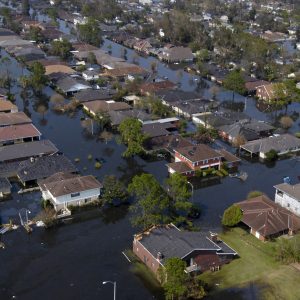“The flooding of New Orleans during Hurricane Katrina was a human-made disaster, not a natural one. The flood-protection system for the city had been poorly designed and maintained. It also turned out that a series of waterway engineering decisions to try to contain the flow of the Mississippi River and to facilitate river navigation to and from the Gulf of Mexico, were badly out of sync with the region’s ecosystem. In short, it was a failure of critical infrastructure at multiple levels that nearly doomed one of America’s major cities. Ten years later, what happened to New Orleans should serve as a forceful reminder of the costly consequences of hubris, denial, and neglect. Sadly, though, this attitude continues to characterize the relationship Americans have with their built and natural environments.

[…]
What has been in too short supply is the political will and leadership that will ensure our communities, metropolitan regions, and nation can better withstand, nimbly respond, recover, and adapt to the inevitable disasters heading our way. There are few more important imperatives that the next president will need to advance than bolstering national resilience.”
To read the full post on the Council on Foreign Relations website, click here.
For more information on Northeastern’s MS in Security and Resilience Studies, click here.
